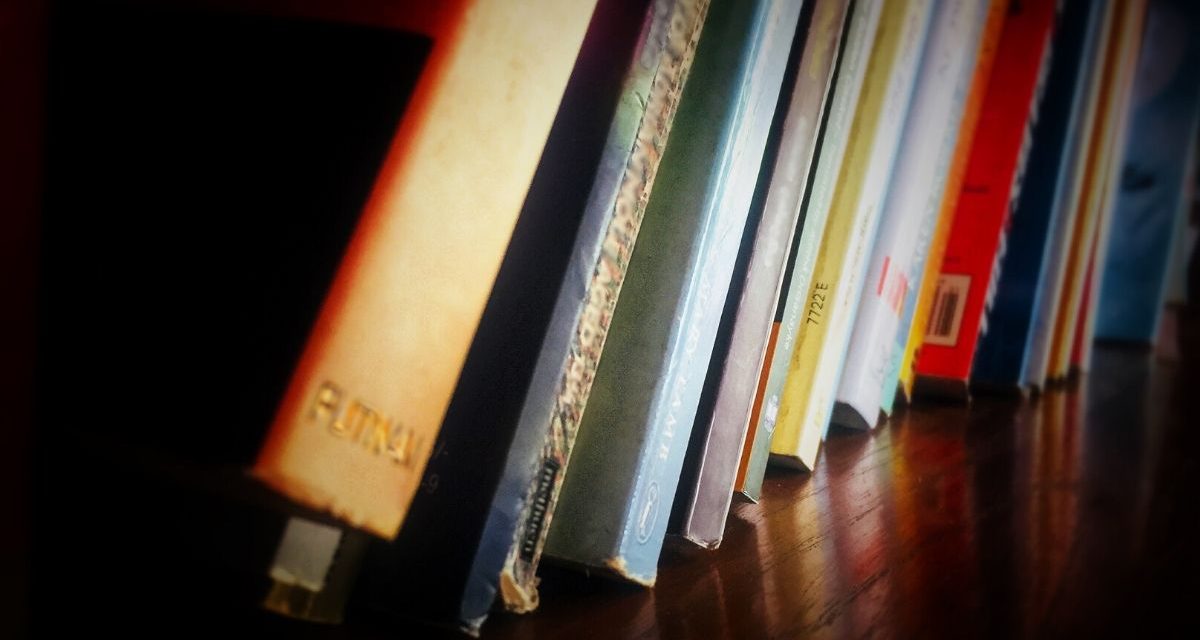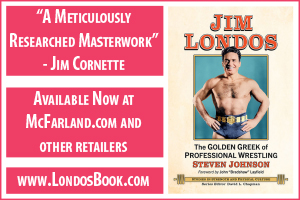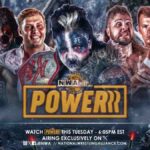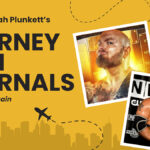Within the pages of Adnan Alkaissy and Ross Bernstein’s book The Sheikh of Baghdad, Alkaissy delivers a unique combination of pro wrestling insight and political intrigue. In a recent conversation with SLAM! Wrestling, he was happy to share further thoughts on his role as an Iraqi national hero, the current state of pro wrestling, and the pride he has in his accomplishments and his family.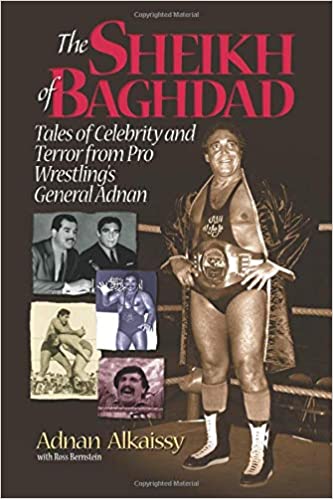
Alkaissy is so grateful to be able to tell the stories included in his book that the relief can be heard in his voice. “It feels great, believe me,” he says in response to being asked what writing the book meant to him. “It’s like I was carrying a big load and I was choked up with it, but I couldn’t do anything about it because [former Iraqi dictator] Saddam [Hussein] was still in power. If I had written the book in that time [before his capture] you know what would have happened to my family. He would take revenge by executing them.”
It’s a point that Alkaissy brings home again and again in his book and in conversation: the threat of losing his family as a result of speaking out was real. “One time I remember 16 or 17 people got hanged to death,” Alkaissy recounts in a somber voice. “Saddam brought them to the square right in the middle of Baghdad and left them there for a couple of weeks. He had a sign on their chest saying what they’d done — he did this to intimidate the people. If you opened your mouth, this is what was going to happen to you.”
Fear of such retaliation didn’t stop Alkaissy from taking on his most famous role in professional wrestling, however. As the WWF’s General Adnon, Alkaissy was part of an angle that exploited the U.S. national pride surrounding Desert Storm. He is quick to point out that he never did more than lampoon Saddam’s image with that character, however. He never divulged anything that would have put his family in Iraq or in the United States at risk. “When I did the General Adnon character, me and Sgt. Slaughter got a lot of heat, of course. I had threats at the matches, but never at my house. The majority of the people just wanted my autograph. I had a suitcase with pictures of me in my Sheikh outfit which I signed for them, and they loved it. You can’t be mean all the time.”
While the book is serving Alkaissy with a chance to get some horrifying stories off of his chest, his real hope is that it can shed some light on why he believes the U.S.-led invasion of Iraq was the best thing that could have happened for his home country. “People have a lot of questions about what’s happening back home. I wish there were three or four people like me from Iraq, trying to help people understand what’s going on. Let the mothers and fathers know what their children are fighting for over there. I’m very proud that the U.S.A. liberated my country and got Saddam out of power. I don’t think any other country in the world would do it.” There is a clear passion behind Alkaissy’s words, and he speaks not as a political pundit, but a man with love for his homeland. “I don’t think another man could do what Saddam did. It could never happen again. People would not put up with it again.”
Alkaissy has not been home to Iraq in over 30 years, and he cites the unrest as the reason why he is still not safe to return. “The insurgence is led by people who know me very well. If I go back and they know I’m there they’re going to get me. They would use me as an example to the rest of the world. It’s not safe for me to go back until peace and freedom and democracy take root and then I will be happy to go.”
As to the question of how long it may be until he feels safe enough to go back, Alkaissy has ideas but still seems as uncertain as anyone about how to bring about peace. “When Saddam’s execution takes place, and I know they’re going to put him to death by a firing squad, when he’s buried and gone, it’s going to cool things down. The United States of America should never back up and never leave without getting things done.”
If Alkaissy is fortunate enough to be able to return to a peaceful Iraq, he has grand plans. “When I go, I want to go big. I want to let the media know, and I would like to do another match in front of 200,000 people. I want to do another book, but this time I want to go home and see my family and go to the place where Saddam Hussein was executed. I’d make a good documentary out of it, and I’ll tell more stories.”
Alkaissy’s stories of growing up alongside Saddam’s rise to power are what make his book such a unique read, and he admits that it would have been much more one-sided towards life in Iraq, given his druthers. “I really didn’t want the book to be just about wrestling. I wanted to write more about Saddam Hussein. We wrote a lot about that, but the publishers in Chicago took a lot of the stuff out. They wanted it 50/50 with the wrestling.”
As captivating as the tales of fear prove to be, however, it would be negligent not to utilize Alkaissy’s experience in sharing his insights into the world of pro wrestling. In speaking with SLAM! Wrestling, he went into some detail about being a part of Vince McMahon’s juggernaut company, and gave his take on the Muhammed Hassan disaster.
“Vince was becoming very popular at the time [of General Adnon’s storyline], since he had the TV and the talent. He was very smart the way he controlled the coast-to-coast TV.” Alkaissy speaks of McMahon in a very common fashion: respect for his intelligence and business sense, but a certain disregard for the way he has taken control. “I don’t like to see it this way [with the WWE having a stranglehold on competition]. I’d like to see it the way it used to be before, with promoters in different states. Then if you get sick and tired of here you can go there, but now you can’t do it.” He says this makes it especially tough to earn a living, since there are fewer opportunities. “Now you’d better save your money and live off it.”
It was Alkaissy’s foresight and financial planning that helped when he finally decided to stop wrestling — at least on a regular basis. “I had a knee operation after I hurt it in the ring in Minnesota, and that slowed me down a little bit,” he says in response to what made him decide to retire. “Plus, my kids were growing up. I have four kids and had left them alone a lot.”
Not surprisingly, Alkaissy takes a few moments to rave about his children: his two sons Kahtan and Khalil, aged 16 and 14, and his daughters Cassidy and Sophie, aged 12 and 7. Khalil is the only one who presently seems destined to follow in his father’s wrestling boots. “He loves wrestling, and I’ve started training him.” Even though his eldest son may not want to become a wrestler, he still went with his father to see a recent WWE show, carrying a sign for John Cena. “I watch now and then, but I don’t like to see what is going on, “Alkaissy says of the current product. “Vince McMahon is 100 percent showmanship.”
Alkaissy’s viewpoints are particularly strong regarding Muhammad Hassan (whose real name is Mark Copani), and it quickly becomes clear that he was a lot closer to the situation that most fans would know. “It’s a very easy question to answer, and it’s very common sense,” Alkaissy begins as he dissects why he feels the Hassan storyline failed while the General Adnon one succeeded. “[Copani’s] not an Arab. He doesn’t speak the language. He does not even know how to put the turban on, it was all wrong.”
The real disappointment for Alkaissy was that he saw much greater potential for Hassan and Daivari — as good guys. “I went to Vince and I told him I’d like to manage these two guys. Let me be the Sheikh of Baghdad, and we’ll be baby-faces. We have to back the government of the United States of America for what they have done.” Perhaps surprisingly, Vince responded to the idea with skepticism that it could be pulled off. Alkaissy says he had a clear plan for making it work, all the same. “Give me one minute in the ring on TV, and I’ll speak to the people and tell them what America has done for us. After I’ve finished talking I’ll take the American flag in my hand and shout U.S.A. and get everybody standing and shouting. I’ll bring some soldiers into the ring and thank them.”
Despite his confidence in making Hassan and Daivari a popular duo, Alkaissy watched with disappointment as the duo spiraled into a public relations mess that ended up with the complete elimination of the characters. “If it’s not Vince’s idea, not his creation, he won’t do it,” was the simple explanation Alkaissy offered for the way things happened. “I was not surprised when they cut the storyline. I feel sorry for [Copani]. The kid was trying hard. They should have at least finished him off right.”
Residing in Minnesota, Alkaissy keeps himself busy with The Adnan’s Children Charity Foundation. It raises money for children in Iraq who have lost their parents during Saddam’s murderous reign. As for wrestling, he still has a spark in his voice when he talks about the occasional in-ring appearance. “I wear my Sheikh outfit, I wear the boots and the swords, and as long as the people are enjoying it, that makes me feel good. I’m still in excellent shape right now. I can still get in the ring and do a match for ten to fifteen minutes. Not jumping in the air, dropkicking, breaking chairs and tables,” he says with a laugh, “but I can do it.”
When asked to pick a single moment from his life that he is most proud of, Alkaissy pauses before delivering what he feels is an important message from an immigrant to the United States. “I am very proud that I came to this country with no money in my pocket, not knowing the language, and establish what I have established. Just achieving a scholarship and finishing school was the greatest thing in the world. A lot of American students should understand that this is their home. They have a family, they speak the language, they have a beautiful home — how can they flunk? I cried and cried at nights for my parents and my brothers and sisters. I hope kids in high school can take my story as a lesson and study, and pass all their courses.”
It’s probably wise to listen to the former General Adnan very carefully, and take what he says to heart. After all, there’s nothing stopping him from teaching someone a few lessons in the ring, if need be. “Don’t think this is the end of the Sheikh. I could get in the ring with my grey hair and go 10 minutes and surprise everyone.”
Here’s hoping that he gets his chance to do just that, at home in a peaceful Iraq.
